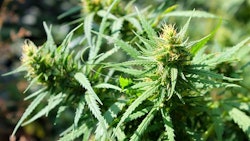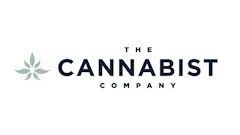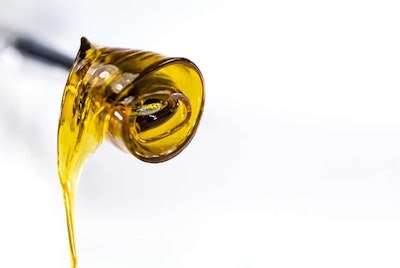
From shatters, to waxes, to Rick Simpson Oil, budders, live resin, terp sauces—and many other cannabis extracts—there can be quite a bit for consumers to choose from at the concentrate counter. Fold in vaporizing techniques, as well as extraction methods, and even terpene evaporation temperatures, and it’s no wonder cannabis concentrates have evolved over the past few years to become a true connoisseur category.
For those less familiar with extracted products, and potentially wary of the idea of “dabbing,” afraid they’ll “get too high,” concentrates can be daunting, and therefore, completely avoided during a trip to the dispensary.
So, how do retailers approach the concentrates categories with their employees, and consumers and patients? Cannabis Dispensary spoke with Chalice Farms and The Green Solution to share their concentrate education methods and perspectives.
Interviewing Consumers, Offering Returns
For Sheldon Howard, retail general manager at The Green Solution (TGS), a vertically integrated operator with several retail locations throughout Colorado, concentrate education is a multi-pronged approach.
“First you have to make sure the budtenders are properly trained up so they spend time with other budtenders that really know their material,” Howard says. This includes virtual training, as well as studying B2B marketing materials, or sell sheets, from their cultivator/processor partners.
Next come conversations with consumers. “We’ve got to really feel them out and figure out what type of customer they are. Are they someone that’s never done concentrates? Are they someone who is [at] a connoisseur level and is looking for something very flavorful…?” he adds. The next step is walking them through the product lines the budtender recommends based on the feedback.
“The consumer education levels have really increased over the last few years, whereas in 2014 a lot of our patients and customers would come through, and they would look at our concentrate wall and they wouldn’t even know what it was,” says Casey Efting, TGS’ regional retail manager. “As the knowledge level of our consumers has increased, their comfortability with these products has also increased.”
For those experienced consumers, consultations are fairly quick, between three and four minutes, Howard says, but budtenders typically spend about 10 to 20 minutes with new concentrate users.
Howard says discovering price, potency and flavor are all important factors—and usually win out in most cases over the science behind them (such as type of extraction). After he outlines product categories, Howard makes sure not to overwhelm the customer, and only offers between two and three products to choose from based on the consultative process.
For example, for those who prefer to have a flavorful experience, Howard might direct those customers toward a live resin, which is typically more expensive. However, if they’re looking for something similar yet budget friendly, Howard recommends waxes and shatters, which are sold at “very incredible prices these days.”
After product is selected, the next most important conversation is about how to use it. “One of the things we really pride ourselves on is being able to coach people through consumption,” Efting says. “Less is always more because you can always do more, but you can never do less, and everyone’s body really reacts to these components differently.”
Additionally, this is where TGS’ return policy gives them an advantage: the company offers a 30-day exchange policy on all its products, Howard says. “So if you’re curious about hash, you can try different types. And if you’re not satisfied with it for any reason, you can bring it back to the store. What this does is make it so I can help the customer find their favorite products, and it’s really not at a huge cost to the customer.”
Simplifying and Educating
At Oregon-based Chalice Farms, Product Development & Training Manager Penn Louis says his goal is to show how the concentrates category is simpler than it seems.
“Something we work to train all of our team on is: [a] hydrocarbon extract is a hydrocarbon extract, and the way that you manipulate temperature, purging processes, and agitation of the material is actually what dictates what final form that hydrocarbon extract will take on,” Louis says. “So we want people to know that the bigger umbrella really is hydrocarbon extract, generally performed with butane and propane. And then there are other types of concentrates and extracts like rosin, like CO2-extracted product.”
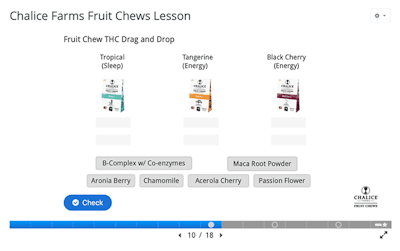
Louis says the second step is finding out what else consumers value outside of the concentrate counter. “If somebody comes in and smells a strain of flower, a Jack Herer, for example, very high in [the terpene] terpinolene, that person may be very interested in smelling a high terpinolene extract. … So the concentrate case is actually a place for our staff to start to determine patterns, start to dictate the way that terpenes make them as an individual feel. Then, once you have that knowledge, you can connect the concentrate case with many other products that a consumer may have already come in to try.”
However, Louis says it’s important not to push consumers into a category in which they’re not comfortable and might be a bit overwhelming. “And we do know concentrates tend to be that category,” he says, adding that part of the budtender’s job is “reframing expectations, letting [consumers] know that concentrate use doesn’t have to be this ridiculously psychoactive ‘put a huge glob of product in your banger and dab yourself into oblivion’ [experience]. Concentrates and extracts can be a very refined form of administration."
“If somebody comes in and smells a strain of flower, a Jack Herer, for example, very high in [the terpene] terpinolene, that person may be very interested in smelling a high terpinolene extract.” – Penn Louis, product development & training manager, Chalice Farms
Part of that refinement, Louis says, comes with new and emerging technologies, like torchless and electronic vaporizer options. Louis says it’s important to offer these types of products in all of Chalice’s dispensaries. “We want to support brands who are making that [first-time experience] as easy as possible, so Puffco Peak is always available in our stores, as well as the Puffco Plus, and we even have some in-house branded electronic dab rigs that make … that first-time consumption of concentrates much more manageable and easier for new users to wrap their heads around.”
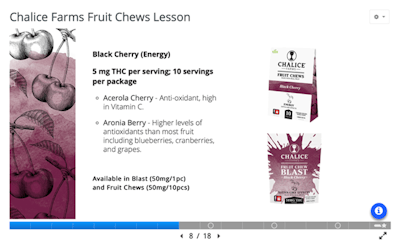
When it comes to further refining the concentrates experience with those technologies, such as vaporization temperatures for concentrates (and flower), for example, there’s a lot more work the industry can do, Louis says, and it’s a conversation they are constantly having with their team as well as more experienced consumers.
“About a year and a half, two years ago, I started looking into—with my trainers and my retail team … vaporization temperatures of flower,” Louis says, adding that in their personal experience, vaping at lower temperatures produced a different effect, even with the same cultivar. “Even from the exact same input products, you can manipulate the effects from said products just based on the vaporization temperatures. That’s a phenomenon we absolutely do know about,” he says, adding that advanced technologies in vaporization devices can help a consumer experiment to find out which settings and temperatures works best for them depending on the type of product. “But to be honest with you, I think that’s an area of opportunity for all of us to learn about in this industry … but as of right now, it’s just a conversation that we’re continuously and constantly having.”
These successful and evolving conversations with consumers around concentrates, and other cannabis products, can’t be had without educated budtenders. So Chalice Farms is also transitioning its education program to a new cannabis-specific virtual education platform called Learn Brands. The company, Louis says, has an in-house development team that helps cannabis operators design custom modules. “They take the existing sales materials that are already available and applicable through … product lines, and convert them into interactive digital training modules,” he says. The learning includes activities and quizzes, and incentivizes budtenders with samples or discounts after their completion, “so you actually get firsthand experience with the new product line,” Louis says.
Learn Brands also has the ability to share feedback with the vendors of the products, Louis says, which helps them get feedback in real-time. “It’s an unbelievable platform, we’re just scraping the surface with it and we actually just launched our in-house training modules” with Chalice’s own concentrates line, Louis says, adding that, “we’re at about 90- to 95-percent completion of all in-house product modules and we only launched Learn Brands a little less than a month ago.”
As vendor days, a traditional and important method of education for budtenders and consumers, have been cancelled due to the COVID-19 pandemic, Learn Brands is especially coming in handy for gathering information from those actually developing the products, he adds. “We are actually right now in the process of connecting 20-plus of our trusted vendors here in Oregon with Learn Brands, and Learn Brands is now working on making modules for each one of those trusted vendors.”
Using many methods in tandem—from cultivator/processor relationships, to uniform training programs across the company, to staying up to date on and offering the latest technologies, and having in-depth consultations with consumers—retailers can offer consumers better first-time and continuing experiences with cannabis concentrates and keep them loyal to their company. Howard from TGS compares the process to wine-tasting: “You can go to any restaurant and get a glass of wine, but if you got to the right restaurant, and there’s a sommelier, you may find your favorite bottle of wine.”











